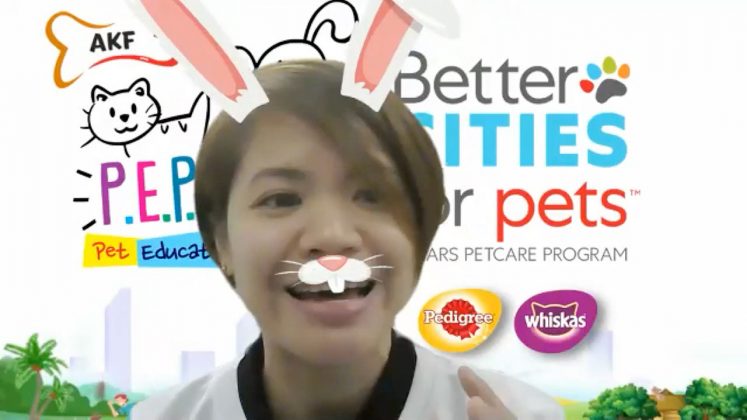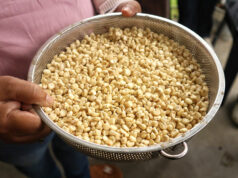Teaching children about basic pet welfare
PETS are considered members of the family, playmates for the kids, and, often, their best friends. For children stuck indoors — thanks to the continuing pandemic — pets can be good companions outside their time in front of laptop and tablet screens.
“Owning a household pet is associated with fewer social emotional problems in young children” and “positive child social outcomes” according to a study published in the Journal of Pediatrics (February 2020) on the association of pet ownership with peer problems and emotional symptoms, and better prosocial behavior. “Positive child social outcomes” included relationships with peers and the ability to form friendships and be well liked which was evident among children without siblings. (https://www.jpeds.com/article/S0022-3476(20)30025-1/pdf).
Mars Petcare Philippines, a pet care services provider and pet food maker, teamed up with the Animal Kingdom Foundation, Inc. (AKF), an animal welfare organization, on an online pet education program called “Peptalk” which is aimed at students aged six to 12. It is part of an initiative launched by “Better Cities for Pets” with an aim to create pet-friendly communities for all dogs and cats.
ON PETS AND CHILDREN
“There are lots of benefits when you introduce pet ownership in very young children. At the very early stage, they learned how to care for animals and then also their environment,” Dr. Saza Curaming, Mars Pet Nutrition Technical Adviser told BusinessWorld in an interview via Zoom in August.
“Children who are exposed to taking care of pets at a very young age understand the concept of responsibility and then they also learn empathy, which is very important nowadays,” she added.
Ms. Curaming pointed to the 3-3-3 Rule in pet acquisition (three days, three weeks, and three months which is specifically for dogs) which is meant to give pets time to adjust to their new environment. It is important, she explained, to allot the first three days after bringing a pet home to the pet’s “become comfortable in their new surroundings,” three weeks “to adapt to the new home or new environment,” and three months “to build a relationship with the members of the family.”
Ms. Curaming said that parents may introduce children to pets as young as age six.
PET CARE EDUCATION
For the project’s pilot session, the first Peptalk session on June 18 involved 300 students from Buting Elementary School in Pasig City. The session included kid-friendly discussions on animal welfare, the five basic freedoms of pets, how to keep dogs and cats safe from rabies, pet nutrition, and exercise. The students also had an opportunity to introduce their pets via a virtual show and tell.
In the same Zoom interview, AKF Program Director Heidi Marquez said that the partnership with Mars Petcare was a way to continue their organization’s Pet Education Program which was postponed due to pandemic restrictions.
“Since we cannot go to the barangay or the local government units, the school is the best forum to educate the children,” Ms. Marquez said.
The children’s modules teach basic animal welfare concepts like dog bite prevention, pet care and nutrition.
“We would love them to showcase their pets and their share their experiences. It’s more challenging online with the kids because they are all very excited, and it’s part of the fun,” Ms. Marquez said of the experience. “We relate that to their practical experiences at home.”
The pet education program is also offered to companies. This program is focused on animal welfare with respect to the law, the environment, and the relationship of animal welfare with the environment.
“We [provide] more details [on] responsible pet ownership, and, of course, liability in in case of neglect. There are topics like emotional support and topics like how to respond to emergencies and how to respond to complaints about animal cruelty,” Ms. Marquez said of the program’s broader topics.
Aside from its education programs, AKF also spearheads Project SNAP (Spay, Neuter, and Adopt Program) and the We Feed As One project, which was initiated during the lockdown to feed stray cats and dogs and supply animal food to struggling shelters.
As for the online series with schools, Ms. Curaming said, “We would like to have hopefully to have more Peptalks in Metro Manila moving forward.”
For inquires and more information, visit https://www.bettercitiesforpets.com/ and http://akf.org.ph/ or https://www.facebook.com/AKFanimalrescue/. — Michelle Anne P. Soliman





